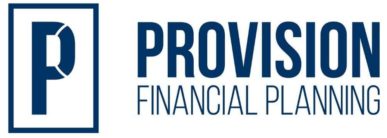A Fee-Only advisor is a Fiduciary, but a Fiduciary may not be Fee-Only.
What exactly is a Fiduciary? At its simplest, acting as a fiduciary means to act in a client’s best interest. Like most things in the financial industry, the term Fiduciary is not so simple. Somehow, there are at least 4 different applications that I know of, and probably more.
As you’ll learn, the Fiduciary waters are becoming more and more muddied, which is why Fee-Only matters more than ever, in my opinion. (PFP is a proud Fee-Only firm and I hope this article shows why).
A Fee-Only advisor does not earn any commission, kickbacks or referral fees. The only compensation this advisor earns is directly from the client.
I’ve summarized how a Fee-Only advisor fits into the various Fiduciary definitions below. Skip to the NAPFA section if you want to cut to the chase.
The Securities and Exchange Commission (SEC)– Registered Investment Advisors are companies and the advisors are Investment Advisor Representatives (IAR) are held to a Fiduciary standard and regulated by the SEC or the states. RIAs are legally required to act in the best interests of their clients. A Fee-Only advisor will always be an RIA.
This is contrasted against Registered Representatives, which work for broker-dealers as sales reps and earn commissions for selling products. Registered Reps are held to a standard called Regulation Best Interest, which sound like Fiduciary but is not.
Insurance agents are not held to either and the insurance industry remains buyer beware.
Here’s the confusing part. An individual can be a “hybrid” advisor, in which they are both an IAR and Registered Rep and even an insurance agent. This person is only acting as a Fiduciary when they are acting as an IAR, not when selling something for a commission. If you think that’s confusing, it’s because it is. Advisors operating under this model are “Fee-Based”.
ERISA– this has traditionally applied to employee retirement plans like 401ks. Recent/Pending rule changes have extended this to apply to rollover recommendations.
CFP® Board– The CFP® Board grants the CFP® certification and upholds it as the recognized standard of excellence for competent and ethical personal financial planning. This is a voluntary designation that any type of advisor can pursue. Certificate holders are required to uphold the CFP® Board’s definition to act as a Fiduciary.
However, there is a loophole, where the standard only applies to the financial planning process. In plain English, this means an advisor could act as a Fiduciary while doing a plan, but recommend a specific product that was not in the best interests of the client. This loophole is being closed in 2020 and is being fought by the brokerage industry, which should tell you how it feels about Fiduciary advice.
**Update: CFP Certificants are now required to act as a Fiduciary to remain a CFP, but may not legally be required to act as a Fiduciary. It will be interesting to see how this plays out**
National Association of Personal Financial Advisors– NAPFA is also a voluntary organization that goes beyond the CFP®. In fact, NAPFA advisors must be a CFP®, and sign a Fiduciary Oath pledging to act as a Fiduciary at all times. This encompasses each of the previous 3 items.
NAPFA Advisors must also be Fee-Only, which brings us back to why Fee-Only matters.
Advisors who are not Fee-Only can still act as a Fiduciary under the sections above by simply disclosing conflicts of interest, but incentives still matter.
A Fee-Only advisor can’t accept commissions or referral fees, eliminating many of the sales-based conflicts so prevalent in the financial industry.
Special Note: I have been each type of advisor at some point and have wonderful friends who still are. My criticism is against the conflicts in the sales-focused system, not the people.
I hope I’ve convinced you that Fee-Only is the only way to go – that was my intent. If I haven’t, I hope you can at least have a better understanding of the different types of financial advisors (commission, hybrid or “Fee-Based”, and Fee-Only) out there so you can make an informed decision.
